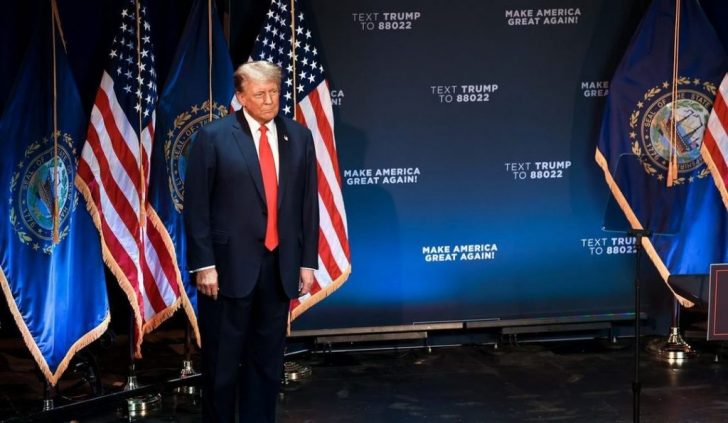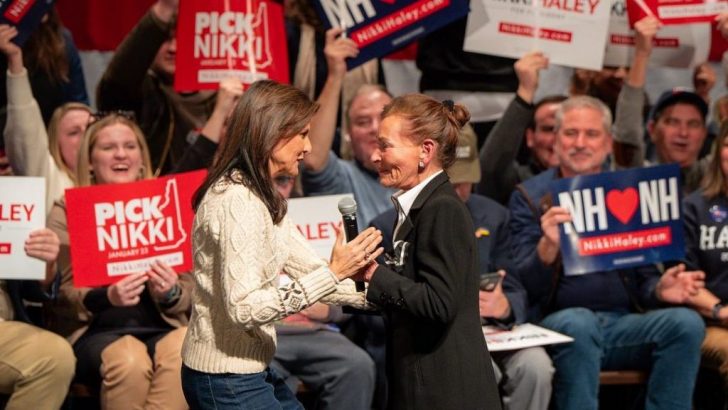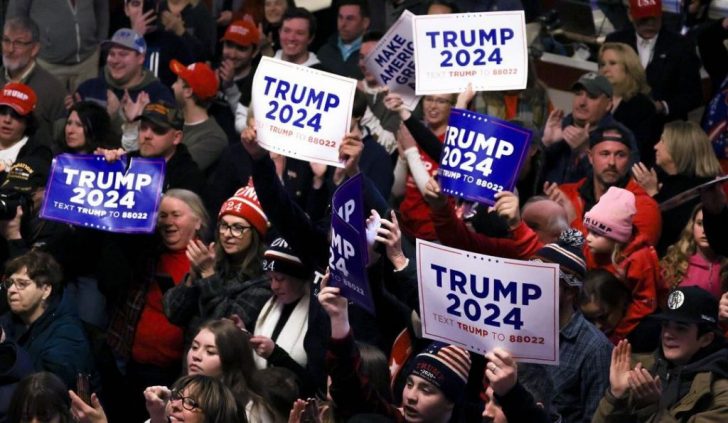In a remarkable turn of events, former President Donald Trump clinched a decisive victory in the Iowa caucuses on Monday night, garnering 51% of the vote. Yet, despite the landslide win, a flurry of conspiracy theories emerged among some of his most fervent supporters, overshadowing the triumph with baseless allegations of electoral fraud.
Trump’s victory in Iowa was significant, outpacing Florida Governor Ron DeSantis, who finished a distant second with 21%, and former UN Ambassador Nikki Haley, who came in third at 19%. The results, confirmed by the Iowa Republican Party and AP’s election tracker, should have been a moment of unification and celebration for the Republicans. However, the aftermath was anything but straightforward.

The Johnson County Controversy
The epicenter of the controversy was Johnson County, where Haley won by a solitary vote. This outcome sparked immediate reactions on Trump’s own platform, Truth Social.
Retired U.S. Army Captain Seth Keshel, a prominent figure in the election denial movement, expressed his disbelief: “Haley by one vote in Johnson County screws my prediction of 99/99 to Trump!” This statement ignited a wave of speculative theories among his followers, some of whom baselessly alleged that voters for Haley were bribed, although this claim lacked evidence.
Echoes of 2020: Conspiracy Theories Resurface
These claims mirror the unfounded allegations that surfaced following the 2020 presidential election.

On far-right online platforms, notably The Donald, a site linked to organizing the January 6 Capitol riot, users alleged that the single-vote win in Johnson County was a deliberate act to enable Haley to claim the Iowa caucuses had narrowed down to a “two-person race.”
Some went as far as to accuse Democrats of being paid to switch allegiances and vote for Haley in the caucus. A claim for which no proof was provided. These conspiracy theories, while lacking in factual basis, underscore a growing trend among some Trump supporters who continue to question the integrity of the election process.
The narrative of a “stolen election,” which gained traction in the wake of Trump’s 2020 loss, appears to be re-emerging as the primary season progresses. This resurgence of skepticism and unfounded claims poses a challenge not only to the Republican Party but also to the broader American democratic process.

As the primary season unfolds, the propagation of these conspiracies threatens to undermine the Republican Party’s efforts to present a united front ahead of the upcoming presidential election. The persistence of such baseless claims could potentially deepen the divisions within the party and among the American electorate.
The Final Word
Trump’s impressive win in Iowa should have been a defining moment for his campaign. However, the emergence of these unfounded conspiracy theories has cast a shadow over the victory. As the primary season continues, the challenge for Trump and the Republican Party will be to navigate these turbulent waters, address the underlying issues fueling these theories, and focus on rallying their base around verifiable facts and democratic principles.
So, the road to the presidential election is long. And how these internal conflicts are managed will undoubtedly shape the political landscape in the months to come.




